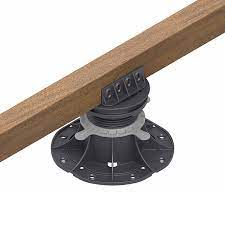The Importance of Support in Our Lives
Support plays a crucial role in our lives, shaping our experiences and influencing our well-being. Whether it comes from family, friends, colleagues, or professionals, having a support system can make a significant difference in how we navigate challenges and celebrate successes.
Emotional support provides us with a sense of belonging and security. Knowing that there are people who care about us and are willing to listen without judgment can help us cope with stress, anxiety, and other emotional struggles. It strengthens our resilience and enables us to face life’s ups and downs with greater confidence.
Practical support is equally important. From helping out with daily tasks to offering guidance or resources, practical support can lighten our load and make difficult situations more manageable. Whether it’s a friend lending a helping hand or a professional offering expertise, knowing that we have someone to turn to can be a source of comfort and relief.
Support also plays a vital role in fostering personal growth and development. Encouragement from others can inspire us to pursue our goals, try new things, and overcome obstacles. Constructive feedback helps us learn and improve, while positive reinforcement boosts our self-esteem and motivation.
Building a strong support network requires effort and communication. It involves both giving and receiving support, being there for others as they are for you. Cultivating meaningful relationships based on trust, respect, and empathy creates a foundation of support that can withstand the tests of time.
In times of need or celebration, having support can make all the difference. It reminds us that we are not alone in this journey called life – that there are people who care about us, believe in us, and stand by us through thick and thin.
Essential Tips for Choosing and Maintaining Reliable Supports
- Ensure your supports are sturdy and reliable.
- Choose supports that are appropriate for the weight they will bear.
- Regularly inspect your supports for any signs of wear or damage.
- Follow manufacturer’s guidelines when using supports for safety.
- Consider the material of the supports to ensure they are suitable for the environment.
- Seek professional advice if you are unsure about the correct type of support to use.
Ensure your supports are sturdy and reliable.
When it comes to seeking support, ensuring that your supports are sturdy and reliable is paramount. Just like a strong foundation is essential for a building, having trustworthy and dependable support systems in place can provide stability and assurance in times of need. By surrounding yourself with individuals or resources that you can truly rely on, you can navigate challenges with confidence and resilience, knowing that you have a solid framework to lean on when the going gets tough.
Choose supports that are appropriate for the weight they will bear.
When selecting supports, it is essential to choose ones that are suitable for the weight they will bear. Ensuring that supports are designed to handle the specific load they will carry is crucial for maintaining safety and stability. By opting for supports that are appropriate for the weight they will bear, you can prevent structural damage, accidents, and potential injuries. Whether it’s choosing the right shelving brackets or reinforcing structures, matching supports to their intended workload is key to their effectiveness and longevity.
Regularly inspect your supports for any signs of wear or damage.
Regularly inspecting your supports for any signs of wear or damage is essential to ensure their effectiveness and your safety. By conducting routine checks, you can identify any issues early on and address them promptly, preventing potential accidents or injuries. Whether it’s checking the stability of handrails, the integrity of braces, or the condition of straps, taking the time to examine your supports can help maintain their reliability and prolong their lifespan. Remember, a small inspection today can prevent a major problem tomorrow.
Follow manufacturer’s guidelines when using supports for safety.
It is essential to follow the manufacturer’s guidelines when using supports to ensure safety. Manufacturers provide specific instructions on how to correctly use supports, such as braces, crutches, or other assistive devices, to prevent accidents or injuries. By adhering to these guidelines, users can maximise the effectiveness of the supports while minimising the risk of potential harm. Prioritising safety through proper usage is key to promoting a secure and beneficial experience when relying on supports for assistance.
Consider the material of the supports to ensure they are suitable for the environment.
When selecting supports for any structure or equipment, it is essential to consider the material used to ensure they are appropriate for the specific environment in which they will be placed. Factors such as weather conditions, moisture levels, and potential exposure to corrosive substances should all be taken into account when determining the suitability of support materials. By choosing supports that are resilient and compatible with their surroundings, you can enhance the longevity and effectiveness of your infrastructure while minimising the risk of damage or failure.
Seek professional advice if you are unsure about the correct type of support to use.
When in doubt about the appropriate type of support to utilise, it is advisable to seek professional advice. Consulting with experts can provide clarity and guidance on the most suitable form of support for your specific needs. Professionals can offer insights based on their expertise and experience, ensuring that you receive tailored recommendations that align with your requirements. By seeking professional advice, you can make informed decisions and effectively address any uncertainties regarding the use of support mechanisms.

